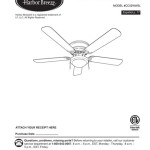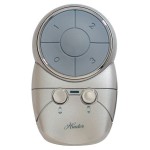Essential Aspects of Lightweight Suspended Ceiling Tiles
Lightweight suspended ceiling tiles offer numerous advantages, particularly in commercial buildings. Understanding their key aspects is crucial for selecting the ideal solution for your space. Here's a comprehensive guide to essential aspects of these tiles:
Materials and Construction
Lightweight suspended ceiling tiles typically consist of mineral fiber, fiberglass, or metal. Mineral fiber tiles, made from a blend of recycled paper and minerals, provide sound absorption and fire resistance. Fiberglass tiles offer exceptional durability and moisture resistance. Metal tiles are lightweight and provide a sleek aesthetic finish.
Dimensions and Sizes
Ceiling tiles come in standard sizes to fit most suspended grid systems. Common dimensions include 2x2 feet, 2x4 feet, and 1x4 feet. Tiles can be square, rectangular, or feature unique shapes for a customized look. The size you choose depends on the grid system and the desired ceiling appearance.
Acoustic Performance
Acoustic properties are vital for controlling noise levels in commercial spaces. Lightweight ceiling tiles offer various sound absorption ratings, measured by the Noise Reduction Coefficient (NRC). Tiles with higher NRC values absorb more sound, creating quieter environments. Acoustic tiles are especially beneficial in open-plan offices, meeting rooms, and other areas where noise can be a concern.
Light Reflectivity
Ceiling tiles influence the overall lighting balance in a space. The light reflectance value, expressed as a percentage, indicates the amount of light reflected by the tiles. Tiles with higher light reflectance values help reduce glare and distribute light evenly. This can lead to increased energy efficiency as less artificial lighting may be required.
Moisture Resistance
In environments with high humidity or potential moisture exposure, moisture resistance is an essential consideration. Fiberglass and metal tiles offer excellent moisture resistance, preventing water absorption and ensuring durability in areas such as bathrooms, kitchens, or indoor pools.
Fire Resistance
Fire safety is a primary concern in building design. Lightweight ceiling tiles contribute to fire protection by providing different fire resistance ratings. Tiles with higher ratings, such as Class A or Class 1, can withstand fire for longer periods, providing valuable time for evacuation and fire suppression efforts.
Cost and Maintenance
The cost of lightweight ceiling tiles varies depending on the material, size, acoustics, and fire resistance rating. Consider the total cost, including installation and maintenance. Maintenance requirements are generally minimal, involving periodic cleaning or replacement as needed.
Conclusion
Understanding the essential aspects of lightweight suspended ceiling tiles will help you make an informed decision for your commercial space. Consider the materials, dimensions, acoustic performance, light reflectivity, moisture resistance, fire resistance, and cost to select the tiles that best meet your requirements. By incorporating these tiles into your suspended ceiling system, you can enhance the aesthetics, acoustics, fire safety, and overall functionality of your space.

Art3dwallpanels Smooth White 2 Ft X 4 Decorative Drop Ceiling Tile Lay In 2720 Sq Pallet P109hd21 The Home Depot

Textured Look Ceilings 403 Armstrong Residential

Art3dwallpanels Basic White 2 Ft X 4 Pvc Lay In Drop Ceiling Tile 96 Sq Case A109hd09wt The Home Depot

Cleanroom Ceiling Tiles Sealed Lightweight With Edges

12 Pack Drop Ceiling Tiles 2ft X In White Pvc 24 24in Com

Prolite Decorative Ceiling Strips Installation

Black Acoustic Ceiling Tile Sound Solutions

Plastic Ceiling Panels 1279 Ceilings Armstrong Residential

Black Acoustic Ceiling Tile Sound Solutions

Easy Elegance Ceilings Armstrong Residential
Related Posts








